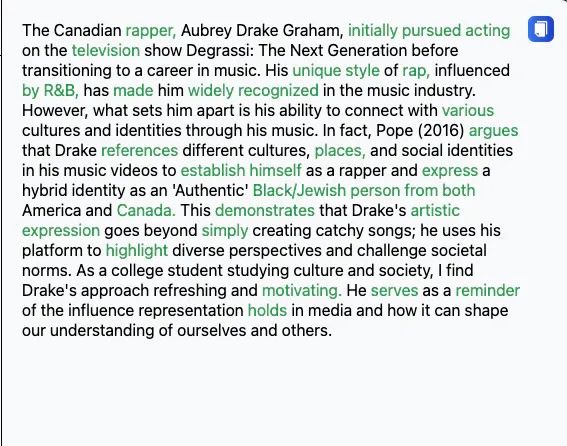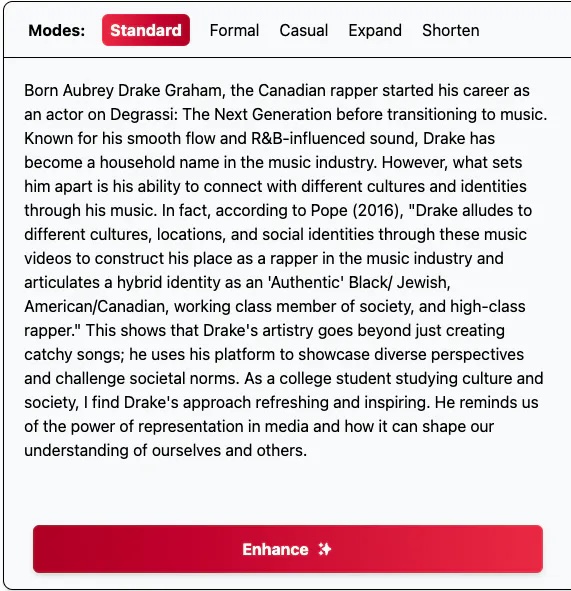AI text enhancer: Transform your writing and homework with AI tools

In today’s educational landscape, where students constantly juggle multiple assignments and deadlines, producing high-quality written content can be a daunting challenge. The pressure to excel academically often leaves little room for creativity, leading many to struggle to craft well-structured essays, research papers, and other written assignments. While traditional study aids have their place, the rapid advancements in AI technology have introduced new tools that can significantly alleviate these pressures.
The main problem is that many students need help to express their ideas clearly and effectively on paper. This struggle is a barrier to achieving good grades and hinders the development of critical thinking and communication skills. Moreover, the repetitive nature of some assignments can lead to burnout, further diminishing the quality of work produced. AI-powered writing tools offer a promising solution for students facing these challenges, enabling them to enhance their content effortlessly and more efficiently.
Challenges facing students in academic writing
Students today are expected to master writing across various disciplines, each with its own rules and expectations. This can be overwhelming, especially when the pressure to perform is coupled with tight deadlines and a heavy workload. The lack of personalised feedback in traditional learning environments also contributes to the difficulty many students experience in improving their writing skills. As a result, students often turn in either underdeveloped or overly simplistic work, missing out on the opportunity to showcase their full potential.
AI text improver addresses these challenges
AI technology has come a long way in recent years, offering solutions that are not only practical but also user-friendly. For students struggling with writing, AI-powered tools can act as virtual writing assistants, helping them refine their ideas and improve their work’s overall structure and quality. These tools can provide real-time feedback, suggest improvements, and even offer alternative phrasing to make the content more engaging and coherent. The benefits of these tools extend beyond improving grades; they also foster better learning outcomes by encouraging students to think critically about their writing choices.
AI text improver: Kipper AI takes the lead
Among the various AI tools available, Kipper AI stands out as a leader with their AI text enhancer. Focusing on students’ needs, Kipper AI offers tools to make writing more manageable and less stressful. From an essay writer, an AI text improver that refines content for clarity and impact to a homework helper that assists with research and idea development, Kipper AI is revolutionising how students approach their assignments.
Founded to empower students, Kipper AI has gained recognition for its effectiveness and ease of use. The platform’s intuitive interface and powerful algorithms make it accessible to students at all levels, whether tackling a simple essay or a complex research paper. By using Kipper AI in their study routine, students can overcome the common challenges associated with academic writing and achieve better results with less effort.
The future of AI in education
As AI continues to evolve, its role in education will likely expand. The tools offered by Kipper AI are just the beginning of what promises to be a transformative shift in how students learn and produce written content. With ongoing advancements in AI technology, students can look forward to even more sophisticated tools to help them excel academically while developing essential life skills.
Integrating AI tools like those offered by Kipper AI into the educational process is a game-changer for students. By addressing the common challenges associated with academic writing, these tools improve the quality of students’ work and make the learning process more engaging and less overwhelming. As the demand for high-quality education continues to grow, AI-powered solutions will play an increasingly important role in shaping the future of learning.
The editorial unit


























Facebook
Twitter
Instagram
YouTube
RSS